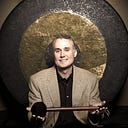A note of gratitude for Tony Hsieh
I woke up early this morning and the first news I read was of Tony Hsieh’s passing last night. It hit me hard — he was only 46-years old. Tony was the long-time CEO of Zappos, only recently retiring in August.
Although I cannot say Tony was a close friend, he was an acquaintance that I had some good history with, most of it indirect. Zappos was one of the original pioneers of customer reviews, which Brant Barton and I decided to bring to the majority of the retail industry when we founded Bazaarvoice (literally named “the voice of the marketplace”) in 2005. Zappos was one of our early influences, with Amazon of course being our biggest (Amazon initially launched customer reviews in 1997, three years after their founding). I believe eBags had reviews even prior to Zappos (they were definitely an influence too), and Circuit City (kind of like a Best Buy that went out of business in 2009) had just launched them, paving the way for Brant and I to see that traditional, store-based retailers had a big need for us to fill.
In 2009, I was named Entrepreneur of the Year in Austin by E&Y. Tony had received the same Award for the Northern California region in 2007. My wife, Debra, and I were invited to the National Awards in Palm Springs. It was there that I connected with Tony, and we immediately connected on innovative company culture. We shared a lot of tips with each other, and it was clear that he was just as eager to learn as share.
In 2010, Bazaarvoice was looking for inspiration to continue to evolve our culture. We had won the #1 company to work for in Austin over the years as we grew from small, to medium, and then large (the Austin Business Journal decided the winners based on company-size categories). To learn from others, Brant and I established the Bazaarvoice Cultural Ambassadors Program, where Bazaarvoice team members would go visit larger companies, known for their terrific culture, to learn from.
One of the first companies we visited was Zappos. What struck us most about the Zappos culture was Zappos University, where everyone joining Zappos went through a very unique onboarding experience, learning about their history and spending a “day-in-the-life” of different employee roles. Even if you were the CFO, you worked in the Customer Service department for a day. We thought this was absolutely brilliant, fostering connection, humility, and empathy across Zappos. It was also expensive — taking weeks of time and being very instructor-led. We decided to take that inspiration from Zappos and launch the Bazaarvoice Scavenger Hunt. Instead of being instructor-led, it was entrepreneurial and self-driven, and instead of it taking weeks, it took one week. It was one of the most popular cultural programs we launched in the history of Bazaarvoice, and I wrote a bit about it in this Lucky7 post. A category of the tasks in our Scavenger Hunt were to learn key roles in the company — for example, go find someone in Customer Success before a big customer presentation, ask them if you can attend, and take notes on what they are presenting, how the customer reacts, and afterwards ask them what the next steps are. There were many team members at Bazaarvoice who would tell me things like, “I’ve been working in Finance departments my whole career, for 15 years now, and I’ve never really known how sales or customer success teams work until now. Thank you!”
In 2013, Tony and I reconnected at the Conscious Capitalism CEO Summit. It was there where we both attended the Holacracy presentation by their CEO, Brian Robertson. I spent a lot of time discussing Holacracy with Tony. I told him I was skeptical of it and thought that human beings needed more structure. I saw that structural need front and center in a class I took at the University of Pennsylvania, which challenged us to take a behavioral class without any discernible structure. It was unnerving but it also taught us a lot about our inner-strengths and tendencies. For example, I really learned in that class that I should forge ahead and be an entrepreneur — that it really was my natural calling. It was so unnerving that you literally had to sign a waiver at the beginning of the class acknowledging that if you had any mental health issues, it could be harmful to you. Holacracy of course has some structure but roles are very fluid and hierarchy is pretty much non-existent. It is based on extreme decentralization in the hopes of gaining empowerment and efficiency. Tony, however, was unafraid — he was a true cultural pioneer. He was the type of person that created Zappos University for companies like Bazaarvoice to learn from and morph into their own. He forged ahead, implementing Holacracy in 2014 at Zappos, with mixed results. I admired that he was so pioneering and brave.
We lost a real entrepreneur and cultural pioneer in Tony. Obviously much will be written about him, including his pioneering work in Las Vegas’ Downtown Project (not the Strip). As for me, I want to express my sincere gratitude for his influence on the Bazaarvoice idea, our culture, and for being such a giving person (he would give his book of cultural tips for free to anyone that asked — including me — and his book Delivering Happiness was exceptional and I’m sure has inspired many). Debra is a huge Zappos customer and fan too, and there is so much to be admired by what he helped create.
Rest in Peace and Power, Tony Hsieh.
